Working Papers
Here you can find my working papers.
- Working Paper
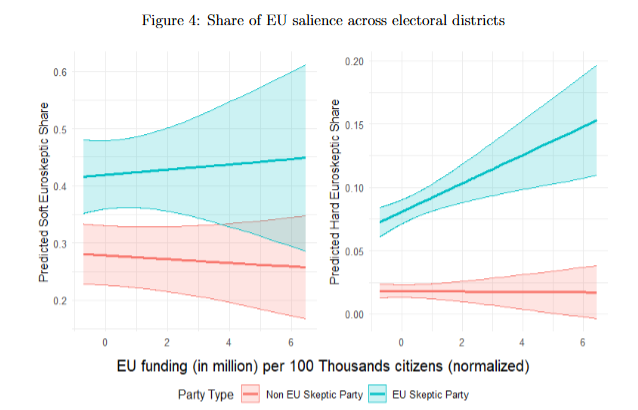 "Place-based policies and Politicians’ Sentiment of the EU: Analysis of Twitter content by German candidates" (R&R in European Journal of Political Research)Johannes Lattmann
"Place-based policies and Politicians’ Sentiment of the EU: Analysis of Twitter content by German candidates" (R&R in European Journal of Political Research)Johannes LattmannThis article examines how the reception of EU place-based policies is associated with politicians’ sentiment towards the EU. Existing research has paid a lot of attention to the effects of EU place-based policies on the electorate, however, there is little knowledge of the effects on politicians. Relying on a large-N Twitter database with up to 5 million observations by German election candidates in a time period from 2017-2021 I estimate how the regional dependency of EU money is impacting the salience and the sentiment of language towards the EU. For this, I match this corpus with up to 300.000 EU cofinanced projects on the voting district level in Germany. Additionally, I utilize a supervised classification algorithm that identifies eurosceptic tweets. I argue that a higher share of EU funding will lead to a higher and more positive sentiment among candidates. Furthermore, I hypothesize that this effect will differ between parties and is conditional to the party line on EU matters. I find that receiving more EU financial support makes the EU more salient in candidates posts. However, there is no change in EU sentiment. In fact, for candidates of the AfD, receiving EU funding is associated with a higher share of EU skeptic posts.
- Working Paper
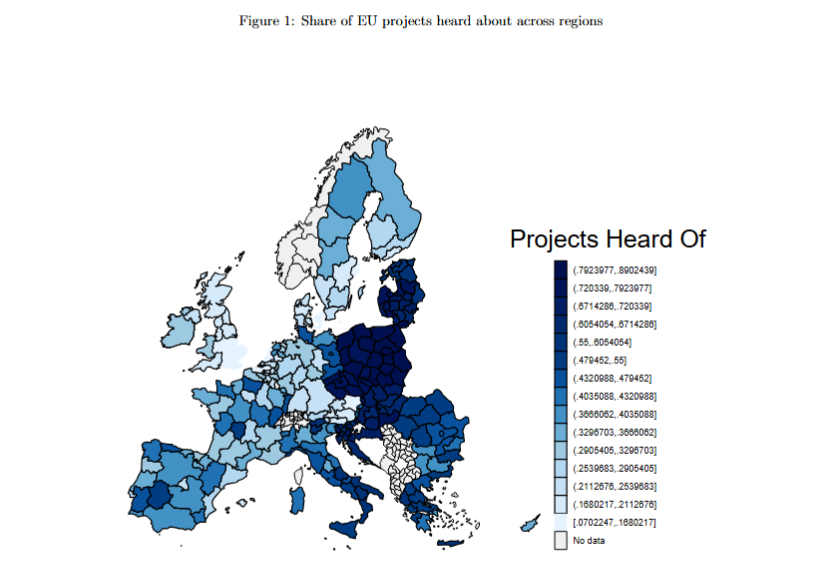 "Hidden in Plain Sight? How occupation shapes awareness and preferences for European funding" (Conditionally accepted in European Union Politics)Johannes Lattmann and Schweizer David
"Hidden in Plain Sight? How occupation shapes awareness and preferences for European funding" (Conditionally accepted in European Union Politics)Johannes Lattmann and Schweizer DavidVast amounts of financial resources are being allocated across the European Union (EU), however, only little is know about the awareness and the opinion of citizens to this regional policy. This article shed light on the knowledge about EU regional policies. Furthermore, we investigate citizens general and regional spending preferences for this allocation. Finally, we explore further the preferences of citizens with regard to the decision-making process regarding the allocation of these financial resources. We argue that differences in awareness across occupations are attributable to skill differences and divergent work logics. Furthermore, we argue that perceived benefits of citiziens should result in variation in spending preferences.
- Working Paper
 "Heterogeneity in the Political and Economic Effect of EU place-based policy schemes: A Supply-side analysis in German Municipalities" (In Review)Johannes Lattmann
"Heterogeneity in the Political and Economic Effect of EU place-based policy schemes: A Supply-side analysis in German Municipalities" (In Review)Johannes LattmannPlace-based policies are often depicted as a means of decreasing resentment by improving economic conditions in left-behind places. Yet, little attention had been paid to the heterogeneity of funds and their respective ends. Relying on 335.000 projects by the the European Cohesion policy for the funding period 2014-2020 in Germany, I investigate how different funding types impact the vote share for the eurosceptic party AfD and support for the EU. First, for the electoral analysis, I use a fine-grained municipality level-dataset (n = 48.045). Second, to further investigate the mechanism of my argument, I harmonized two GLES election datasets (n = 12.000) for examining individual-level data. I find that public good projects and direct firm support are especially potent in improving firm tax revenues. Nevertheless, it is projects dedicated to individual support or public goods that significantly decrease AfD vote share. Lastly, I show that the effect on project type on EU support is depending on the income-level of citizens.
- Working Paper
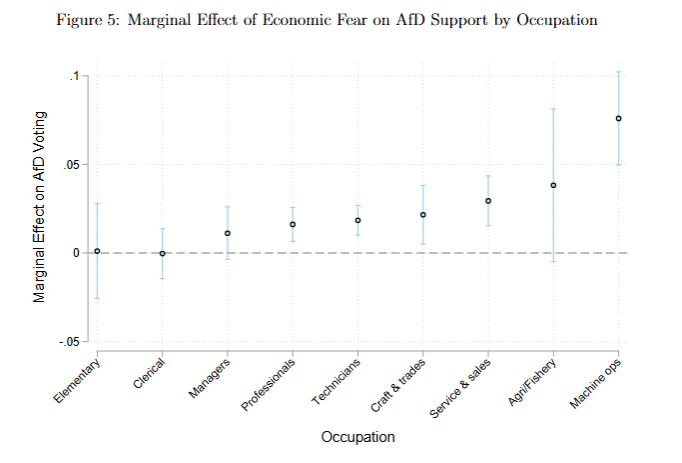 "Economic Threat and Support for the AfD: Conditional Effects by Socio-Economic Characteristics" (In Review)Johannes Lattmann and Moritz Raykowski
"Economic Threat and Support for the AfD: Conditional Effects by Socio-Economic Characteristics" (In Review)Johannes Lattmann and Moritz RaykowskiEconomic insecurity is considered an important determinant to explain the pop- ulist rise in recent decades. In this article we highlight that economic threat is conditional to income, education and occupation because economic threat is likely to be less credible to citizens with high socio-economic status. We show that eco- nomic threat is a strong driver for populist right support, but only for citizens for which the threat is likely to be credible. We rely on 2021 GLES data (N = 8850) from Germany. Our results suggest that economic threat particularly is associated with populist right support for low income individuals, manufacturer workers and less educated citizens. In turn, for high income individuals, high-skilled occupations and highly educated, economic threat has no significant association with populist right vote.
- Working Paper
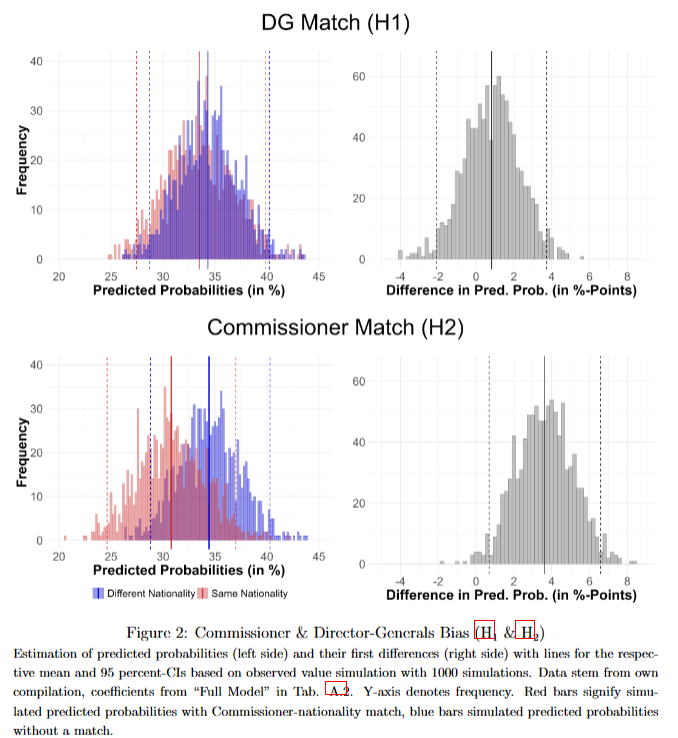 "Assessing the Impact of EU Officials’ Characteristics on Infringement Proceeding Outcomes"Jan Menzner and Johannes Lattmann
"Assessing the Impact of EU Officials’ Characteristics on Infringement Proceeding Outcomes"Jan Menzner and Johannes LattmannInfringement proceedings is a legal tool for the European Union (EU) to enforce common laws on member states. This article engages with the question how the nationality and the partisanship of EU officials shape the outcomes of such proceedings. We argue that both, Director-Generals and Commissioners are likely to find themselves in a principle agent conflict, having two roles, the role of an EU official and the role of a partisan of their own state. We hypothesize that infringement proceedings are less likely to advance when they are handled by EU officials who share the nationality of the member state under investigation. We rely on a unique dataset on infringement proceedings (N = 19,352) from 2002-2020 to test this. We find evidence for a nationality bias in the proceedings, however, only for commissioner. Moreover, we find no support for a partisanship bias.
- Working Paper
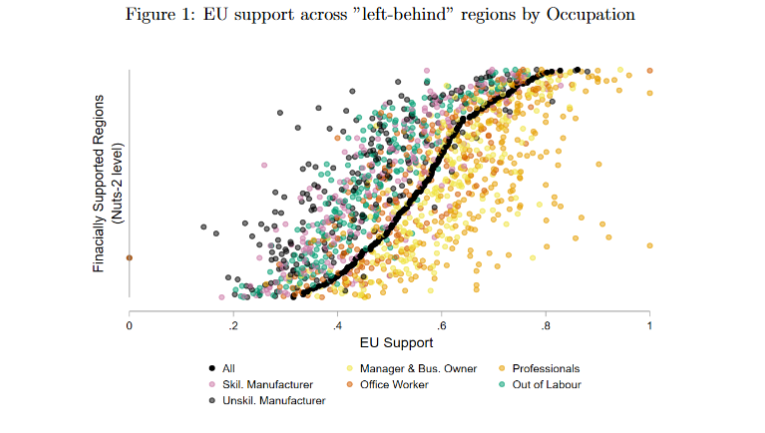 "A False Promise for the Left Behind: The Uneven Political Impact of Place-Based Policies"Johannes Lattmann and Valentin Lang
"A False Promise for the Left Behind: The Uneven Political Impact of Place-Based Policies"Johannes Lattmann and Valentin LangTo counter regionally concentrated political frustration, place-based economic policies targeting disadvantaged regions have become increasingly popular among policymakers. This paper examines the effectiveness of place-based policies in mitigating political frustration and populism with a focus on their distributional effects within regions. We argue that place-based policies are unlikely to benefit the most disadvantaged voters due to a skill bias. %Instead, we expect place-based funding to be skill-biased, benefitting primarily well-educated voters with lower levels of political discontent. Empirically, we study the world’s largest place-based policy in the context of the European Union (EU) using a natural experiment and randomized survey experiments. We construct a 1980-2020 dataset with subnational geocodes at the individual level (N=1.4 million) across the EU and leverage a discontinuity in regional funding eligibility in an RD design. In experiments embedded in a two-wave survey (N=2,046), we expose respondents to information and encouragement treatments related to the policy. Both analyses show that place-based policies reduce political discontent only among the highly skilled and the rich, while political attitudes of other groups are not affected. These results highlight that the effectiveness of place-based policies in addressing political discontent is severely limited by their distributional effects.